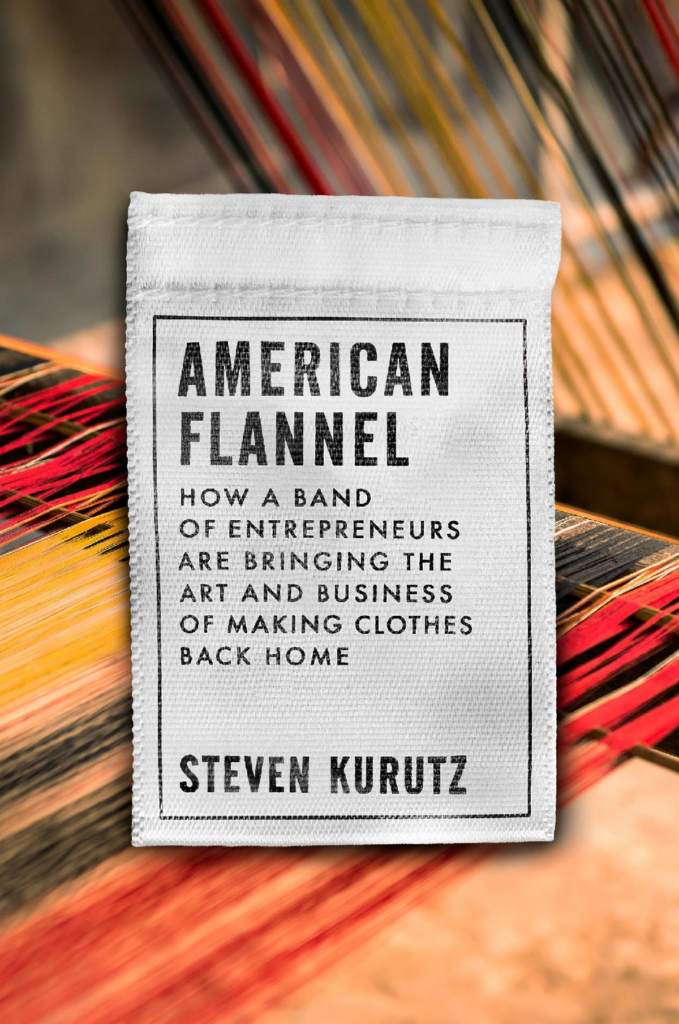Everything you ever wanted to know about apparel manufacturing but were afraid to ask can be found in Steven Kurutz’s American Flannel. Yet you’d be forgiven for not wanting to be exposed to any of the facts reported therein. How over the past four decades, we’ve gone from about 70% of what we wear being made in the US to 2% today. Or that for mass producers, it’s become all about logistics with thoughtful design relegated to at best a secondary concern. Or how the ruthless pursuit of margin & earnings resulted in widespread offshoring that’s wiped out local communities, towns, cities, economies. “America had outsourced the shirt off its back,” reports Kurutz. The book would’ve been dismal if not for the author’s masterful storytelling style. He lets the tension build around his central subjects, a band of nutty entrepreneurs who, against better judgment insist on reviving factories and reshoring supply chains. With all the sewer dwelling seen in headlines these days – crypto scams, hush money payoffs, overtime cheats, oh my! – this lot is worth rooting for.
Meet the stars. First up is Bayard Winthrop, who abandoned soulless work on Wall Street and in Silicon Valley to launch high quality clothier American Giant in order “to produce real things,” writes Kurutz. Throughout Winthrop is presented as a teapot ready to explode, headstrong and discontented, forever on tenterhooks at the fragile start-up. Then there’s Gina Locklear, founder of Zkano, maker of women’s socks that’s helping stem massive job losses in her hometown of Fort Payne, AL, once the world’s sock capital. The reader sits courtside to witness “Gina’s tireless drive and iron will” and “for all the economic devastation around her, she would not be deterred.” We get chills learning of their determination, but best of all are the supporting players. Among them, the yarn dyers of North Carolina, all of a certain age and bygone era, hanging on to their careers like grim death, yet somehow unfailingly cheerful. The production manager battling Parkinson’s, grinding through every day because the complicated machinery won’t run without his oversight. The reader is torn, of course rooting for their success, while wondering if Walmart still needs greeters.
We read about two seismic eras that helped pave the way for such an exciting countertrend. The first is the Great Recession that led to an appreciation of the artisanal (craft beer, organic coffee) and the rethinking of spending habits. “The new chic was investing in a few select pieces of superior quality,” writes Kurutz, “rather than buying cheap stuff to be worn a couple of times and then tossed.” The other was Covid. After the initial shockwaves wrought by a pandemic, domestic producers benefited by the nimble nature of local relationships. Big apparel that operates a year in advance suffered the comeuppance of shipping containers floating toward stores that were either closed or empty, brimming with product destined to be heavily discounted or liquidated. Meanwhile, our heroes were able to leverage shorter lead times and even start making masks. With a steady hand, Kurutz stitches these stories together into a tapestry that celebrates the successes of US manufacturing without a hint of jingoism. It’s a book with the sort of impact that may just have you scrutinizing the story of your entire wardrobe.
If you have anything to say about this – or book recommendations – kindly post below (rather than emailing me) to spark conversation. Thank you!


A continuing wonderful service to your friends who cannot read everything they should. I just read two Sy Montgomery books about Turtles and Octopus. Be well my old pal. John
John, I really appreciate such a kind, thoughtful comment. Fun timing too as I was just learning more about Ms. Montgomery yesterday! Stay well yourself. Thank you.